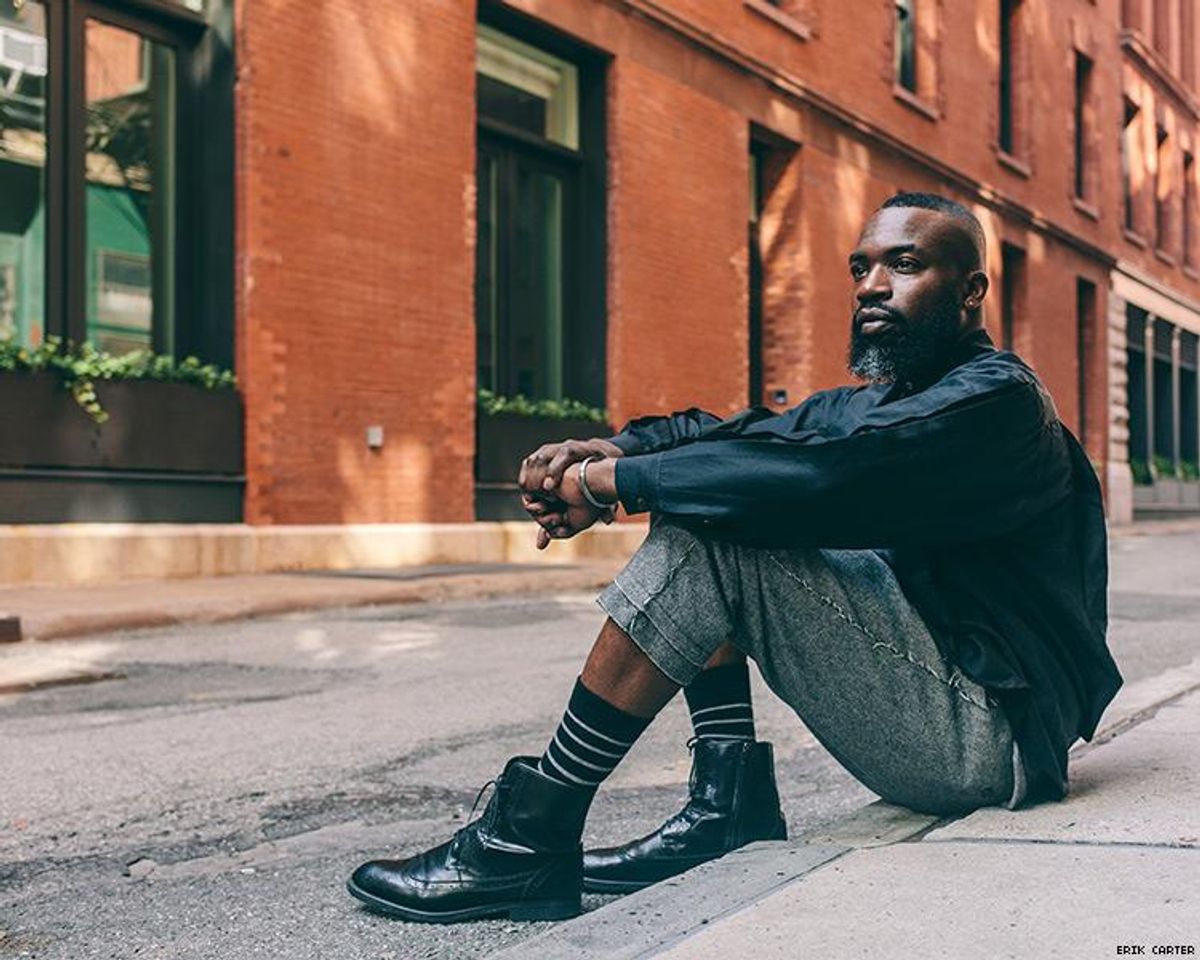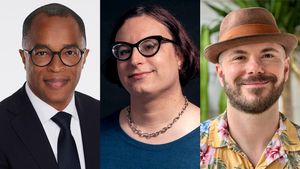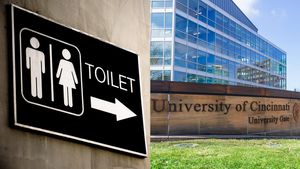I had buried my fear of HIV years before when my aunt Cookie told me, at the age of 15, that a second cousin I had never met was gay. She didn't actually say the word. She made a hand motion others used when they wanted to communicate that someone they knew was a fag. And for the fag, wrists, like any dream of his desires for acceptable intimacy, seemed to always be broken. Aunt Cookie quickly added, "Your cousin's name was Darnell, too. He died of AIDS." Her semantics game worked. I would never again say AIDS and gay without interpreting them as synonyms. My fate was sealed. I was gay and, therefore, AIDS would be my fate, just like my dead, gay, HIV-positive cousin whom I had never met, who may have existed only in Aunt Cookie's imagination.
But I kept my cousin alive in my dreams. I imagined that his skin was smooth and as brown as maple. His eyes were deep and dark. His hands were strong, but smooth enough to be held by the hands of another man. His back was perfectly postured, strong enough to carry his lover from the sofa to the bedroom. He was the black man I learned to openly shame and secretly admire. He was my aunt's friend Keith, a hairstylist who sashayed through our neighborhood. He was LeRoy, my high school classmate who jumped double-dutch better than the girls. He was Dre, my high school friend who told me I was gay before I knew I was, who was hurt because I messed around with his boyfriend like I messed around with our mutual friend Ramik's crush. Dre died before I knew what was wrong; he was buried along with his secrets. This was the imaginative world black men like us, who flirted with, fucked, and deeply loved other black boys and men, tried our best to survive -- despite the ways HIV decimated those around us in the 1990s.
Some of these men -- sometimes beloved and sometimes scorned -- were our fathers, uncles, neighbors, boyfriends, hookups, and play mothers. So many of us were and are living through the post-traumatic anxieties of those years. Public health research and community-based interventions then and now focus on the "who" and not the "why" when it comes to advocacy related to black boys and men and HIV. During my late adolescence, never once did a doctor ask me, while administering an HIV test, if I experienced love or rejection, connection or estrangement. It didn't matter that Billy, a man I met in a public park before we hooked up, was beautiful and kind. They wanted to know if I had sex with men. They didn't ask why it was I decided against using a condom despite my awareness of HIV risks. It didn't matter that I never had sex with Jason, a neighborhood friend who didn't identify as "gay" or "bi" then or now, and yet shared care and intimacy with him. Some doctors didn't even smile while interrogating me. Some never asked if I was okay, because my feelings were not their concern. Humans feel, but subjects report.
Black boys and men are read as hypersexual: strong enough to deal with anything that comes our way, possessed of a brutish masculinity that prevents us from feeling, enabling us to terrorize others' bodies. Our dicks are caricatured as weapons or photographed as objects of desire poking out from our clothes, the only part of our bodies that's coveted. Our eyes as lacking tears. Our hands as tools for violence or pleasure, but little in between. Our lives as worthy of quick conclusions.
Whether my fate as a black man in love with other men was God's retribution or some form of nature correcting the unnatural, Aunt Cookie's words haunted me like a divine foretelling. And as long as I would die from AIDS, fucking and being fucked raw by Billy in his strange row house in Philly would be of no consequence. I imagined death to be sweeter when the dying didn't die alone, so I sought other bodies as company. If loneliness and rejection are the worst deaths, I had died many times before.
Pleasure and survival, touch and attraction, are not so easily pulled apart. I met up with Billy in a park, turned to his body, sought refuge in his arms and in his bedroom, fucked, and disappeared for days with him because I located unspoken desires where they could not be found elsewhere. Not in sex education classes, living rooms, church sanctuaries, workplaces, or state institutions. And I was willing to deal with the consequences because I believed, because I had been told, that I would be infected and deadened anyway.
These actions tend to be the consequence of a twisted self-fulfilling prophecy we are socialized to believe. Too few are asking us the questions to get to the depths of black queer boys' traumas. What is it that you desire but have been denied? What is it that you need to feel safe? How do you actually feel about the person you had sex with? What is it about him you desire? What are the sources of your pain? Who hurt you? Who first told you that your sexual desires and attractions were wrong? Does it feel better when you use a condom? Do you feel more connected when you don't use a condom at all? What is it about that particular connection that fulfills you?
To ask those questions would mean black boys and men would have to be seen, first, as bleeding, crying, and sometimes resilient human persons. We are breakable. Black boys and men are still going to parks. They are searching for an embrace and sex with another man or woman, the butterflies in the stomach when a crush says hello, relief from estrangement, pleasure, comfort, and so much else people across the spectrum of sexualities are in search of. Black same-sex love is revolutionary because we must first convince ourselves we are deserving of receiving and giving what has been denied us for so long.
The human spirit breaks when longings so human, so acceptable to everyone else are denied. Homophobia is the strong hand that strangles the desires of those too vulnerable to undo its firm grasp. Lovelessness is a consequence of living in a queer-hating society. It shapes relationships between black men who love men, just as it shapes our relationship to the communities we exist in. We've been denied love. And some of us have sought out what we could to fill the gaping wells drained dry by a society that taught us to hate ourselves. But like cunning magicians, many of us have learned to break ourselves out of our cages even when those attempting to master our lives keep fervent hold of the keys.
Excerpted from No Ashes in the Fire: Coming of Age Black and Free in America by Darnell L. Moore.




















































































Did 'The White Lotus' waste Lisa's acting debut?